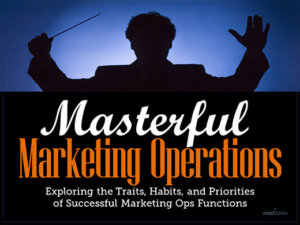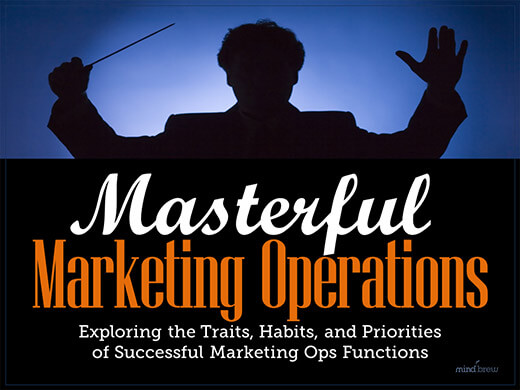In a recent webinar for Playbook subscribers called Masterful Marketing Operations, we exposed many of the traits, behaviors, and priorities that the most successful teams have in common. Among the common threads we discussed was the fact that these teams tend to be extremely analytical and data-driven.
Makes sense, right? Kind of a no-brainer, isn’t it? I mean, who wouldn’t want to replace all the subjective guesswork with a more fact-based approach?
But building a data-driven marketing operation where anecdotes and opinions have ruled for years is no easy task. And infusing “science” into something that many have long-considered to be an “art” is challenging to say the least.
Here are five tips gleaned from those who’ve already made the transition:
- Make sure you have the right people in the right places. Most pundits talk about how you need to have more analytical people on your marketing team. But what’s often glossed-over is that these people need to be in positions of authority and influence. After all, what good is it to have data-driven analysts working a couple of levels below marketing leaders who prefer to just go with their gut?
- Get in the habit of expecting data for important decisions. “Show me the data,” can be a powerful phrase for setting new expectations and changing behaviors. Used on a regular basis, phrases like this can teach people that anecdotes and opinions aren’t going to fly anymore. But don’t get carried away. Insisting on having supporting data for every little thing…things that are immaterial…can be paralyzing.
- Educate everyone about the data that’s available to them. People sometimes rely on anecdotes and opinions because they’re simply unaware of the existence of data that could help them make more informed decisions. So take an inventory of all of your various data sources and repositories. Then, make sure everyone knows about them and what kinds of information can be found within them.
- Support various ways to gather or create supporting data. You can’t let the absence of data become a valid justification for using guesswork or intuition to make important decisions. If the data doesn’t exist, you want your people to be thinking about how to gather or create it. Encourage and support things like conducting marketing research, running small pilot programs, and using split-runs or multivariate testing.
- Leverage quick wins as broader educational opportunities. With transitions like this, it’s always important to rack up some quick wins to maintain momentum. But as the results are so timely, using quick wins as mini case studies is a great way to maximize the relevance of the analytical approaches you’re trying to instill, while connecting the dots to the real-world results and impacts.
As we’ve said many times before, the status quo can be a formidable and alluring opponent. And unfortunately, the status quo for many marketing operations today is the very antithesis of “data-driven” and “analytical”.
But you shouldn’t let the fact that it can’t happen overnight discourage you. After all, the “masterful” marketing operations we discuss in the webinar weren’t always paragons of analytical thinking. They had to work at it, too!







